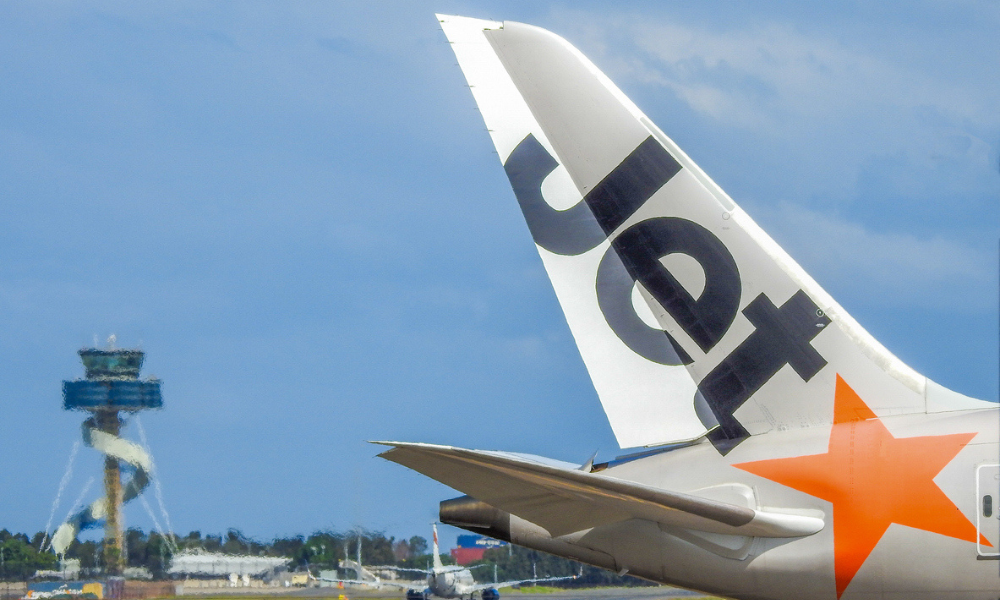
ERA rules unjustified dismissal after airline fails to consider all alternatives for pandemic-related issues

The Employment Relations Authority recently dealt with a case involving a pilot who was dismissed from his job due to his unvaccinated status during the COVID-19 pandemic.
The pilot argued that his employer unfairly denied his request for leave without pay and failed to consider alternatives before terminating his employment.
He said that he was willing to be vaccinated, but had concerns about the available vaccine and wanted to wait for a different option.
The worker had been employed as a pilot by Jetstar Airways Limited (Jetstar) since July 2009, initially as a first officer before being promoted to captain in June 2011. He was described as experienced and well-regarded by colleagues.
When the COVID-19 pandemic hit in 2020, the airline ended all New Zealand domestic, trans-Tasman and Pacific Island passenger flights on 27 March 2020. With no work available, pilots including the worker were placed on special leave without pay under variations to their collective agreement.
In July 2021, the government amended the COVID-19 Public Health Response (Vaccinations) Order 2021 to include "aircrew members". This required pilots to receive their first vaccine dose by 30 September 2021 and second dose within 35 days of the first dose.
The airline started communicating with employees whose vaccination status was unknown, including the worker. On 4 September 2021, the airline wrote to all staff about the recent government order requiring air border workers to be vaccinated.
The worker expressed concerns about the Pfizer COVID-19 vaccination, which was the only one available in New Zealand at the time. He said he would accept the Novavax vaccine, which he believed would be available in New Zealand by February 2022.
On 16 September, the airline's head in New Zealand wrote to the worker, stating:
"[The worker] was covered by the COVID-19 Public Health Response (Air Border) Order... [The airline] expected to start operating international services by the December roster period and needed to know if he was vaccinated to determine whether he could operate international services in that period... he would have to be vaccinated against COVID-19 to perform his role..."
The airline and the worker had several meetings and exchanges about the vaccination requirement. The worker maintained his concerns about the available vaccine and its potential risk to his health.
On 9 November, the worker requested leave without pay. He wrote:
"I would like to opt out of the December roster. I would also like to apply to take Leave Without Pay on compassionate grounds until a proven safe vaccination with normal liability protection such as Novavax, Valneva 2001 or most preferentially COVX19 from Australia is available."
The airline declined this request on 23 November, citing operational and commercial requirements. The airline said:
"We have also considered that your request is based on you seeking to opt out of your position for a period of up to 12-month period to avoid having to comply with obligations under the Order. This is an Order that nearly all your colleagues have taken steps to comply with.”
After further correspondence, the airline moved to review the worker's ongoing employment. A meeting was held on 17 January 2022 where the worker reiterated his view that denying leave was unfair and maintained his concerns about available vaccines.
On 21 January 2022, the airline terminated the worker's employment with two months' pay in lieu of notice.
The dismissal grounds were that the worker had not provided evidence of vaccination or a medical exemption.
The ERA found the airline failed to fairly consider the worker's leave without pay request, amounting to an unjustified disadvantage. The Authority said:
"[The airline] is unable to establish it has fairly and reasonably considered [the worker's] request for leave without pay and a personal grievance for unjustified disadvantage has been established. [The worker] could reasonably expect such a request, in these particular circumstances, to be fairly and reasonably considered including having conclusions as to his motivation for the request put to him in a fair and reasonable way to allow him to comment."
The dismissal itself was also found to be unjustified. The Authority determined the airline had not met the high threshold of ensuring "all reasonable alternatives that would not lead to termination of [the worker's] employment had been exhausted" as required by law for COVID-19 related dismissals.
The Authority said:
"The failure to fairly consider the leave without pay request, as detailed above, means it cannot be said this alternative was exhausted. A further matter concerns whether [the worker] could have been directed, following appropriate consultation to use his annual leave balance to avoid dismissal."
While reinstatement was sought, the Authority declined to order this, citing concerns about the erosion of trust and confidence between the parties. The worker was awarded $20,000 compensation for humiliation, loss of dignity and injury to feelings.
The Authority concluded:
"For these reasons [the airline] is unable to establish it has discharged the statutory requirement to ensure all other reasonable alternatives to dismissal had been exhausted prior to dismissal. These failures render [the worker's] dismissal unjustified."
This case highlights the importance of employers thoroughly considering all alternatives before dismissal, especially for pandemic-related issues, and engaging in good faith discussions with employees about their concerns and requests.